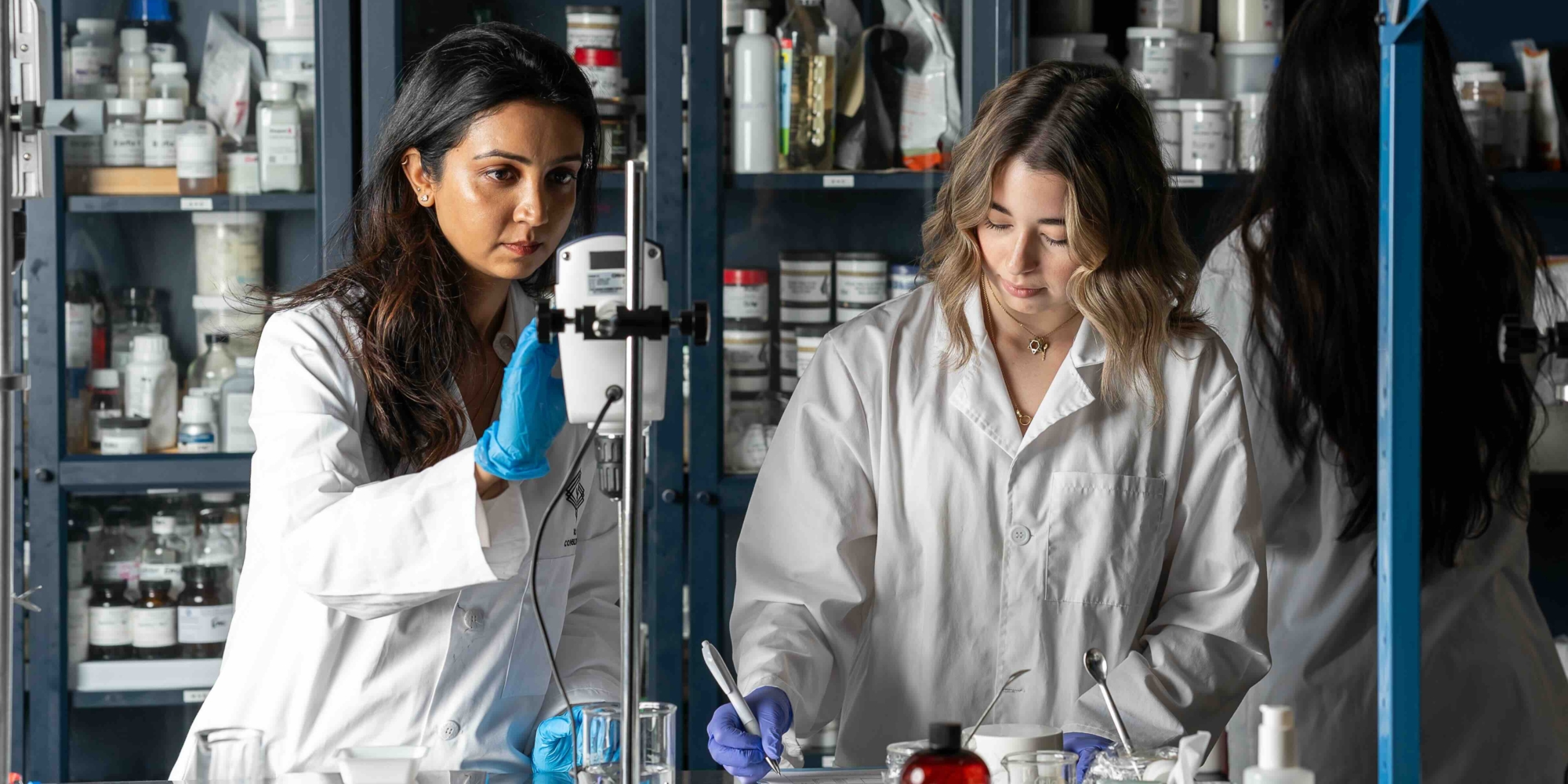
KKT Labs’ Answer To Beauty’s Innovation Drought
While the beauty industry launches tens of thousands of new products each year, very few are revolutionary, and genuine breakthroughs have become increasingly rare.
The problem is exacerbated by large beauty conglomerates’ pressing operational challenges, the small research and development budgets of younger brands at the fastest-growing emerging end of the market, and the feverish race to spin out products at the lightning speed of social media. In 2024, market research firm Mintel estimates that 46% of beauty and personal care launches were truly new products, marking a 10-year low in innovation across the category.
Krupa Koestline, the cosmetic chemist and founder of custom development company KKT Labs, believes she can help tackle the lack of innovation. In the six years it’s been in business, KKT Labs has formulated over 1,500 products sold in retailers such as Credo, Sephora and Ulta Beauty, worked with more than 85 brands, including Rhode, Kopari, Tower 28, Peach & Lily and Nopalera, and produced 10-plus patentable technologies, all with a team of seven people.
Now, KKT Labs is poised to take its business up a notch. Next year, it’s opening a 16,000-square-foot innovation hub in Orlando, which it describes as the first independent facility dedicated to fusing biotechnology with formulation. With biotech yet to see a substantial impact on the beauty industry and the footprints of its products, KKT Labs is at the center of ushering in its advances to commercialize the discoveries beauty has been sorely missing.
“My vision for the company has always been very clear from the beginning. I have always wanted to be the one place to go to if you want to do something new and innovative,” says Koestline. “I think the building is going to reinforce that in a very big way, and we are going to continue to do things to keep reinforcing the fact that real innovation can happen, and we are the ones leading it.”
Beauty Independent caught up with Koestline to discuss the forthcoming facility, the promise of biotechnology, her annoyance with artificial intelligence and project with it, the reasons why technology transfers go awry, and what’s next for beauty ingredients.
What will your new facility allow you to do that you can’t do now?
As a business, I have been struggling the last few years with, what is the next step for us? We considered contract manufacturing. We even tried it and quickly realized we were going to lose our soul if we get into contract manufacturing.
Thankfully, I’m at a place now where, whether you are a big brand or small brand, you get treated the same. In contract manufacturing, that’s not true because bigger clients place bigger purchase orders, and you make money when you do large volumes. I worked at a contract manufacturer. It wasn’t for me because it’s not really a place you can think outside the box.
We also thought about clinical testing. That didn’t resonate with my background. I’m a biotech girl. I have a master’s in biotech. Biotech feels very natural to my DNA.
We got presented with the opportunity of buying a building. Our current lab lease ends at the same time as the building is ready. We have been profitable, and our sales year-over-year have been amazing. Even though it’s daunting to buy something for $6 million, it was a risk I could take. Don’t get me wrong, it’s a big deal because we’re self-funding it.
We thought there’s a white space in the industry. Ingredients wise, there’s nowhere a brand can really go to explore. You basically have two options. You can go to a university to do it, but, when you work with academia, all they want is data, and they don’t understand the application of what you are doing.
The second option is to rely on a supplier for something exclusive. When you do that, the supplier comes back and says, “How much are you going to buy?” If you’re a new brand, you don’t know how much to buy.
Why is there a lack of innovation in the industry?
Everyone wants to do the same thing because it’s trending. A few months ago, it was all about lips. Now, everyone wants a mist. I understand that brands have to follow trends, but there’s a lack of innovation in terms of thinking of things authentically for your brand. Very few brands are doing something that hasn’t been done before. From a brand side, I understand there’s no place for them to do that.
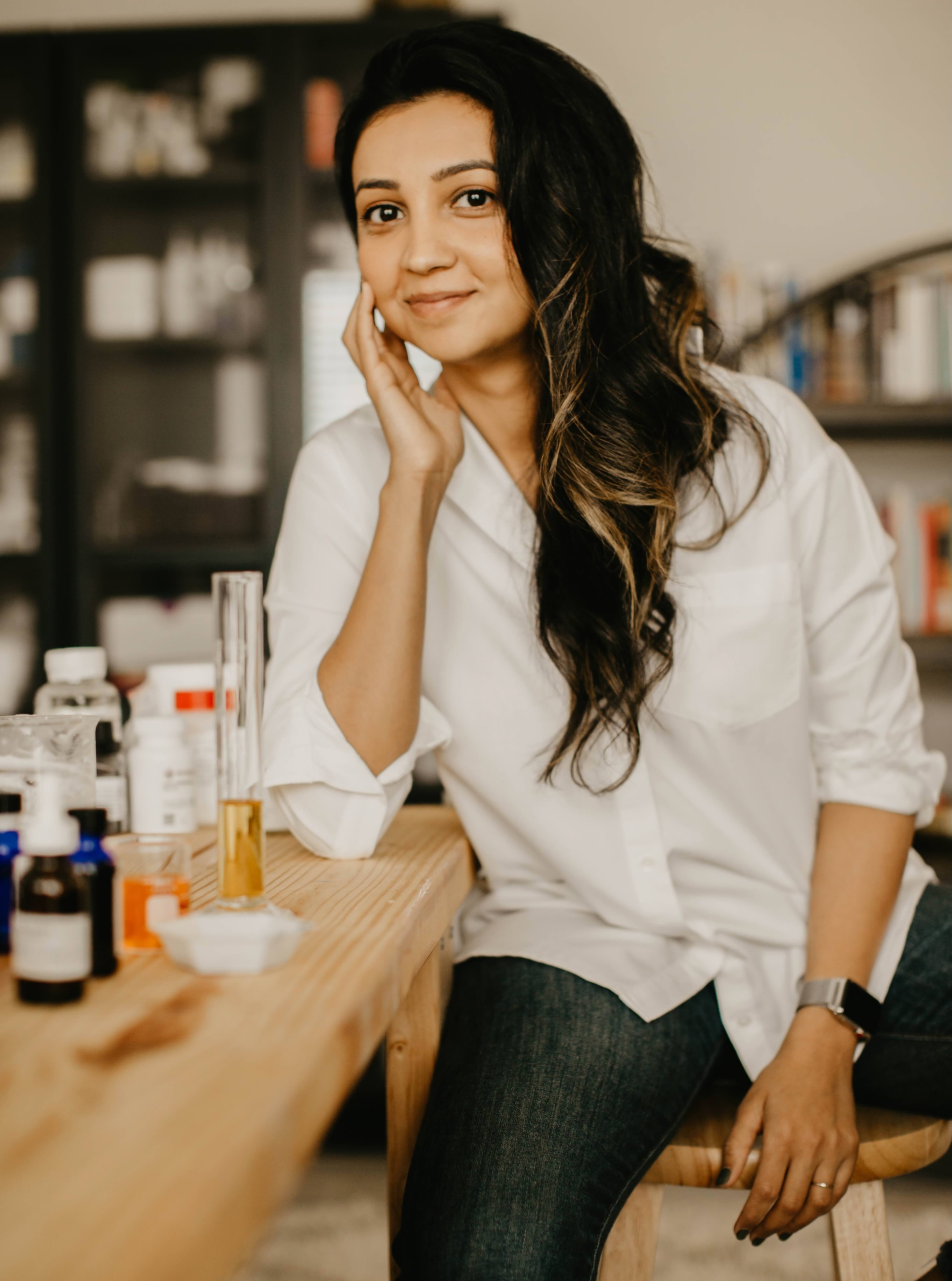
It seems like there’s been backpedaling on sustainability from beauty brands.
I don’t think there’s backpedaling. My perspective is different because I’m closer to the ingredients side. With regards to packaging, it’s effected by the tariff situation, and there’s no real answer for sustainability. Even glass isn’t that sustainable. In ingredients, it’s inevitable that you are using more sustainable ingredients now, whether the brand chooses to make that front and center or not.
Biotech is inherently better. The idea behind biotech and why it’s so sustainable is because it stops you from getting things from nature that you can make in a lab, and when you make those things in a lab, they are pure. You can control quality. When I think about sustainability, I’m thinking about how much water gets consumed making it, the labor, soil, electricity, everything. If you look at it from that lens, it makes sense that biotech is better.
Is biotech better for efficacy?
Efficacy wise, in our industry, there’s hardly anything that will make a real difference for the consumer. That’s a tough subject. What the consumer should care about is the fact that, when I make an ingredient in a biotech facility using fermentation, the difference is that it’s reducing the amount of allergens that might cause adverse effects.
What are things you’re watching in biotech?
I have been floored with the technology that is emerging in the biotech space in our industry. LipoTrue has mind-blowing systems. Look at what Future Society has done with bringing back scents that we’ve never smelled before. There’s Core Biogenesis and CLR, a German company that’s been doing fermentation for about 100 years. They’ve been able to make ferments that are extremely powerful and well tolerated by the skin.
LipoTrue and Core Biogenesis, what they do is they take a DNA or mRNA sequence for a peptide and put it in a plant. When the plant grows up and makes more plants, it makes more of that peptide. They use plants as their factories. It’s beautiful.
For clean beauty 2.0, Credo CEO and co-founder Annie Jackson and Macro Oceans CEO and founder Matthew Perkins call for radical transparency in manufacturing. Do you think that can be a part of clean beauty 2.0?
No. I understand the need for transparency, but I don’t think this is just about clean beauty. To me, the reason why clean beauty is clean is because we are talking about green chemistry, sustainability and ethical sourcing. Transparency does fall into it in terms of fragrance transparency and being transparent about what’s in your product. If your manufacturer is heating something or using an expired ingredient and is transparent to you about it, how is that clean beauty?
What’s a clean beauty 2.0 framework that you would draw up?
The word “clean” is so tainted now. I don’t know how I feel about it. I’m tired of explaining to people what I mean when I say clean beauty because of the fearmongering. But is there an evolution? I hope there is an evolution in the clean beauty space, whether you call it clean beauty or not.
When we develop products, we look at the 12 principles of green chemistry. We train chemists on what green chemistry means. We look at, how do you know something is legit when a supplier sells it to you?
When we talk about tech transfers, how are we going to construct a formula that takes into account that it’s cold-pressed so we don’t use a lot of energy for mixing and it spends as little time in the tank so it can be more sustainable? The brand often doesn’t even market that their formulas are cold-processed, but it’s my responsibility to make sure whatever I put out is clean in that sense.
We hear complaints from contract manufacturers about tech transfers from independent cosmetic chemists. They often say they can’t scale up their formulas or that they’re too expensive.
Unfortunately, there is a very small barrier to entry to becoming a cosmetic chemist. Anyone can call themselves a cosmetic chemist whether they have bench experience or not. There are chemists out there who don’t understand that the equipment they use in their lab is different than the equipment someone might use in a manufacturing plant. A good cosmetic chemist will have that experience and will know if what they’re making will translate to a bigger batch.
I can understand the frustration, but when my clients hire me, I make sure that, when they select a contract manufacturer, I ask them the questions that I need to ask and visit the manufacturer to understand how they do things. I was at a contract manufacturer a few days ago, and I realized that, if there are two phases involved in the formula, they’re going to have to be in two tanks, and that would be more expensive for my client. I am going to make sure whatever I design for them will be in a single tank.
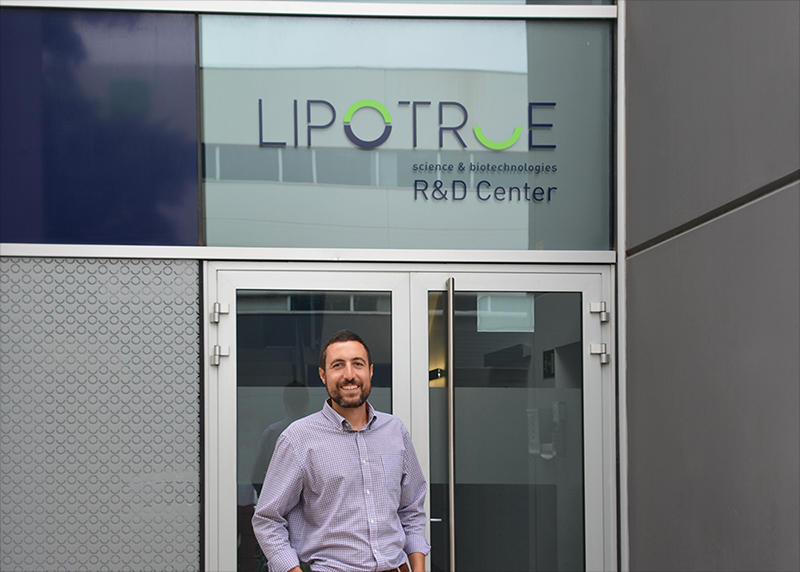
How much should a beauty entrepreneur expect to pay an independent formulator?
I’ve seen prices that range from $5,000 to $25,000 to $30,000 to $40,000 for a formula. If you hire someone that doesn’t have experience with tech transfers, you are going to pay $5,000.
Has AI changed what you do?
AI has been very annoying to me because brands now think they know everything. New clients come up to me and say ChatGPT has already designed the formula for me, I just need you to make it, but when you translate it on the lab bench, it doesn’t work. Am I worried that it’s going to take my job? No, not at all.
Are there AI tools you find helpful?
I am working on something very exciting where we are trying to design an AI-powered lab assistant where, if you are a consultant and you don’t really know what you are doing, it can help you. I don’t know when we will launch it.
Do I use AI? I use ChatGPT quite a bit, but not for giving me all the answers. I mostly use it to ask, can you reframe this email so I don’t sound like a bitch?
What’s ahead for beauty ingredients?
I see a lot of new technologies in terms of functional ingredients, not just actives. We are seeing innovation in terms of thickeners. Macro Oceans is working on a thickener derived from kelp. I’ve seen other functional ingredients that are going to help formulators create textures people like without having to rely on ingredients that aren’t allowed in retailers’ clean standards.
It’s undeniable that the whole industry is going more clean and sustainable. People don’t want to use PEGs, cyclic silicones or phthalates, and a lot of suppliers are coming up with ingredients that can replace those traditional ingredients that aren’t liked anymore.
In light of the scandal involving the testing of Australian sunscreens, what advice do you give brands to ensure they don’t run into similar problems?
The advice that I have been giving brands is to use multiple labs, which a lot of brands are now doing. If you are launching a drug, it’s not a small thing. You should understand the responsibility that comes with it. If you don’t have the money, don’t launch a sunscreen.
It’s also well-known in the industry that there are certain labs that will give you really good results and certain labs that won’t give you really good results. If you are a chemist and cynical, and you see on the back of a bottle a brand that calls itself natural that has 5% zinc and SPF 50, it’s BS. You don’t have to wait for the whole PCR thing to happen to know there’s no way you got that.
If you could wave a magic wand and make a change to the beauty industry, what change would you make?
It would be nice for the industry to reward real innovation, which doesn’t happen a lot of the time. Retailers end up supporting brands that have more money to spend versus if the product really has something new.

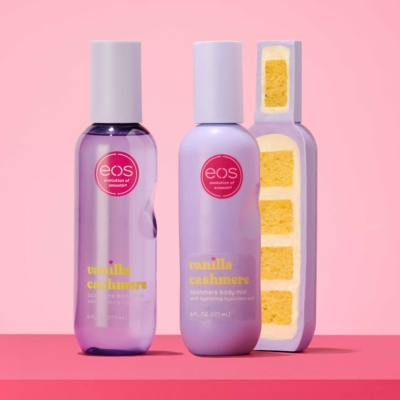
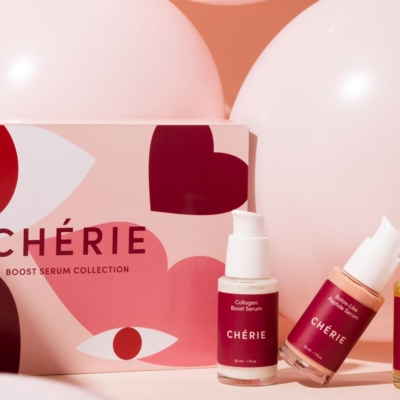
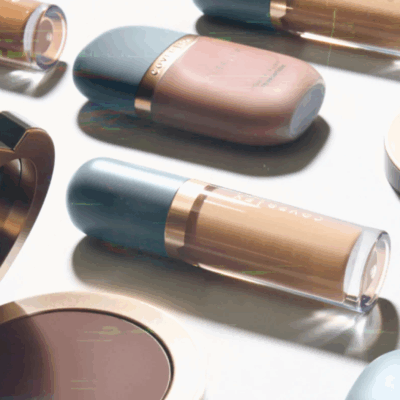

Leave a Reply
You must be logged in to post a comment.